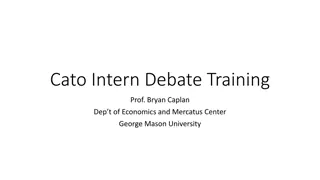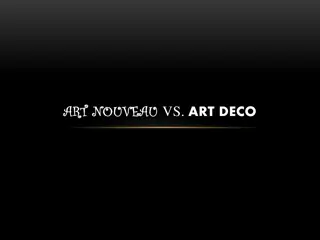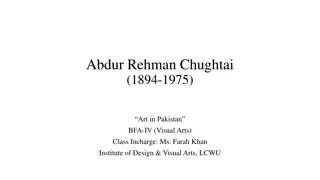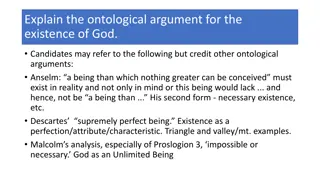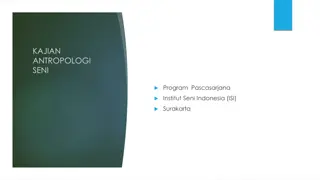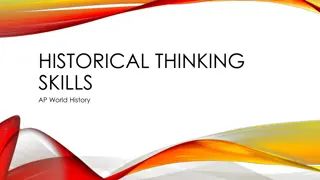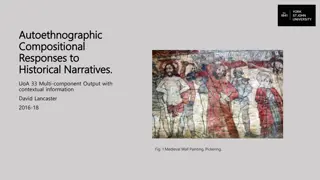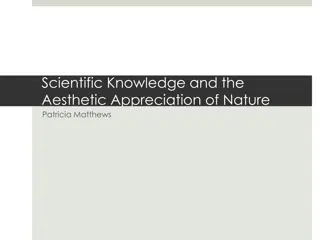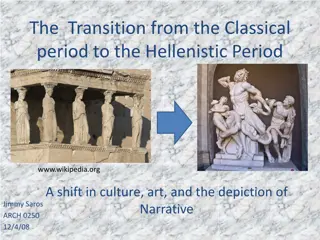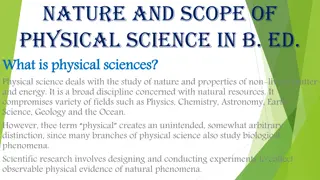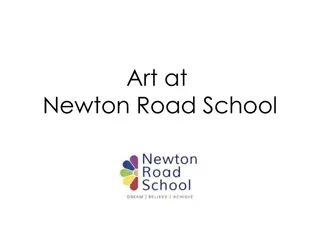Is History a Science or an Art? Debating the Nature of Historical Study
Opinions are divided on whether history should be classified as a science or an art. While history employs techniques similar to scientific methods for research, certain aspects distinguish it from traditional sciences. Arguments against history as a science include the inability to forecast, the complexity and variability of historical facts, and the lack of dependable data due to the nature of human thoughts and actions. Despite these challenges, history continues to be a crucial field for understanding the past.
Download Presentation

Please find below an Image/Link to download the presentation.
The content on the website is provided AS IS for your information and personal use only. It may not be sold, licensed, or shared on other websites without obtaining consent from the author. Download presentation by click this link. If you encounter any issues during the download, it is possible that the publisher has removed the file from their server.
E N D
Presentation Transcript
History-a Science or an Art Dr.AGHALYA.,M.A.,M.Ed.,M.PHIL., Dr.AGHALYA.,M.A.,M.Ed.,M.PHIL.,Ph.D Head & Head & Asst.Professor Asst.Professor Department of History Department of History Bon Secours College for Women Bon Secours College for Women Thanjavur Thanjavur Ph.D., .,
Opinions are very much divided on the question whether history is a science or an art. History is a science in the sense that it pursues its own techniques to establish and interpret facts. Like other natural sciences such as the Physics and Chemistry uses various methods of enquiry such as observation, classification, experiment and formulation of hypothesis and analysis of evidence before interpreting and reconstructing the past.
Opinions are very much divided on the question whether history is a science or an art. History also follows the scientific method of enquiry to find out the truth. Though historian uses scientific techniques, experiment is impossible since history deals with events that have already happened and cannot be repeated.
Arguments against History as a science 1.No forecasting: A historian cannot arrive at general principles or laws which may enable him to predict with certainty the occurrence of like events, under given conditions. A scientist on the other hand, looks at knowledge from a universal angle and arrives at certain generalizations that help him to control the present and predict the future.
2. Complex The facts of history are very complicated and seldom repeat in the real sense of the term.
3. Varied The underlying facts of history have wide scope. They are so varied that they can seldom be uniform.
4. No observation and experimentation Historical data are not available for observation and experimentation.
5. No dependable data :Historical data are the products of human thoughts and action which are constantly changing. They therefore cannot provide dependable data for the formation of general principles and laws
History is both a Science and an Art History is a unique subject possessing the potentialities of both a science and an art. It does the enquiry after truth, thus history is a science and is on scientific basis. It is also based on the narrative account of the past; thus it is an art or a piece of literature.
History is both a Science and an Art Physical and natural sciences are impersonal, impartial and capable of experimentation. Whereas absolute impartiality is not possible in history because the historian is a narrator and he looks at the past from a certain point of view. History cannot remain at the level of knowing only. The construction and reconstruction of the past are inevitable parts of history.
History is both a Science and an Art Like the work of art, its wholeness, harmony and truth are inseparable from a concrete and vivid appreciation of its parts. History, in fact, is a social science and an art. In that lie its flexibility, its variety and excitement.



